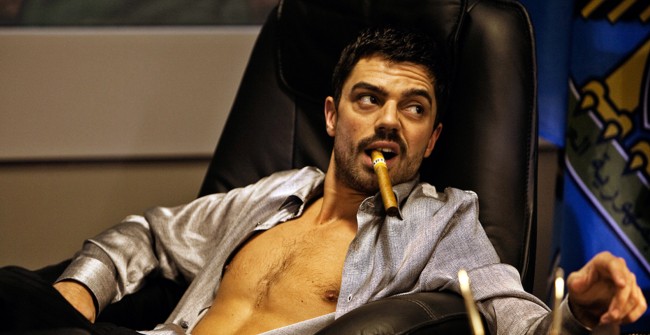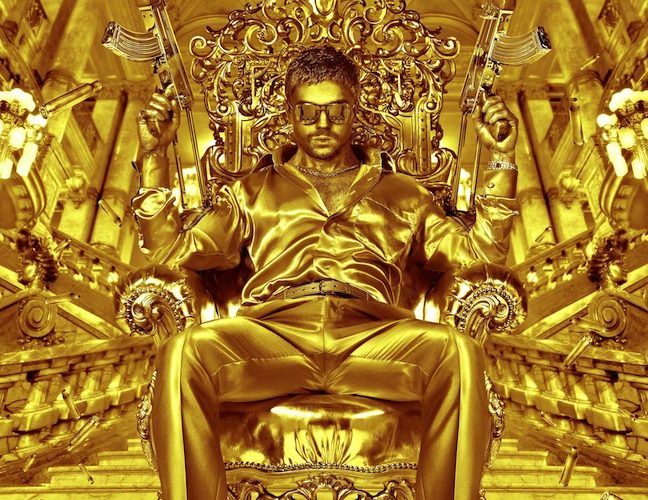
There’s a potentially fantastic film in The Devil’s Double, possibilities that are mostly squandered or confused. What could have been an immensely interesting character study is instead a ludicrous piece of so-so camp. Lack of focus is The Devil’s Double’s greatest, and possibly most funny, flaw.
Director Lee Tamahori‘s intentions are never clear throughout the film. Does he want to make an examination about the horrors caused by Saddam Hussein’s lunatic son Uday? Is he trying to make a dark comedy? Is he trying to do both at the same time? Neither Tamahori nor the film commits to much of anything. Serious and interesting questions lay dormant in the drama about a mad man and his do-gooder double. Tamahori, a once-promising filmmaker, doesn’t seem interested in diving into any thought-provoking territory.
And then the film wades into a thick layer of messy cheese. There are some lovably absurd moments here, but they don’t quite fit with the half-baked seriousness. If a comedy is trying to be made out of this story, then on some level, it’s pretty offensive. When Uday Hussein cuts open a man’s stomach and shoots him, right after attempting to rape a 14-year old girl, should this moment really be played for laughs? Uday causes such terror and allegedly did in real life. Should we laughing at these atrocities for entertainment value?
And while this is most likely not the intention, the film so ludicrous at times it’s almost as if a laugh track would’ve been appropriate. The tone is all over the place, and though there’s some fun to be had in that regard, it’s never clear how much fun.
Perhaps these two drastic shifting tones are intended to represent the duality of the situation. Uday finds everything terrible that he does to be hilarious, while Latif is mortified by the madness. But then the film doesn’t play off this idea very much, so it’s difficult to make that argument.
 If one aspect works, it’s Dominic Cooper‘s bonkers (and accent-slipping) performance as both Saddam’s son and his doppelganger. This isn’t a brilliant duel performance like a few recent examples – Edward Norton in Leaves of Grass or Sam Rockwell in Moon – but it’s a performance full of enough energy to hold the film together in its lesser moments to keep you engaged.
If one aspect works, it’s Dominic Cooper‘s bonkers (and accent-slipping) performance as both Saddam’s son and his doppelganger. This isn’t a brilliant duel performance like a few recent examples – Edward Norton in Leaves of Grass or Sam Rockwell in Moon – but it’s a performance full of enough energy to hold the film together in its lesser moments to keep you engaged.
The biggest factor that keeps this from being a truly great performance is that the character of Latif Yahia isn’t half as interesting as Uday. The crazed and coked-up president’s son story is grander, more entertaining and more controversial. How did this once innocent baby grow up into being a psychopathic man-child? And though Latif be the hero of the tale, the tone of the film and varying themes never allow his character proper exploration. Does Uday, in some ways, rub off on Latif? It’s a particularly interesting question the film, and filmmaker, doesn’t seem interested in answering or even asking.
The Devil’s Double is a film that, on a lot of levels, has every right to be terrible. Fortunately enough, Cooper gives an entertainingly feverish performance as Uday that keeps this from being a dismissible misfire. If Tamahori committed to being campy and went all out, this could have been audaciously bizarre entertainment. If the director went with something more serious, this could have been a mental and situational epic horror film. As it remains, The Devil’s Double is a curiously watchable hit-and-miss biopic.

